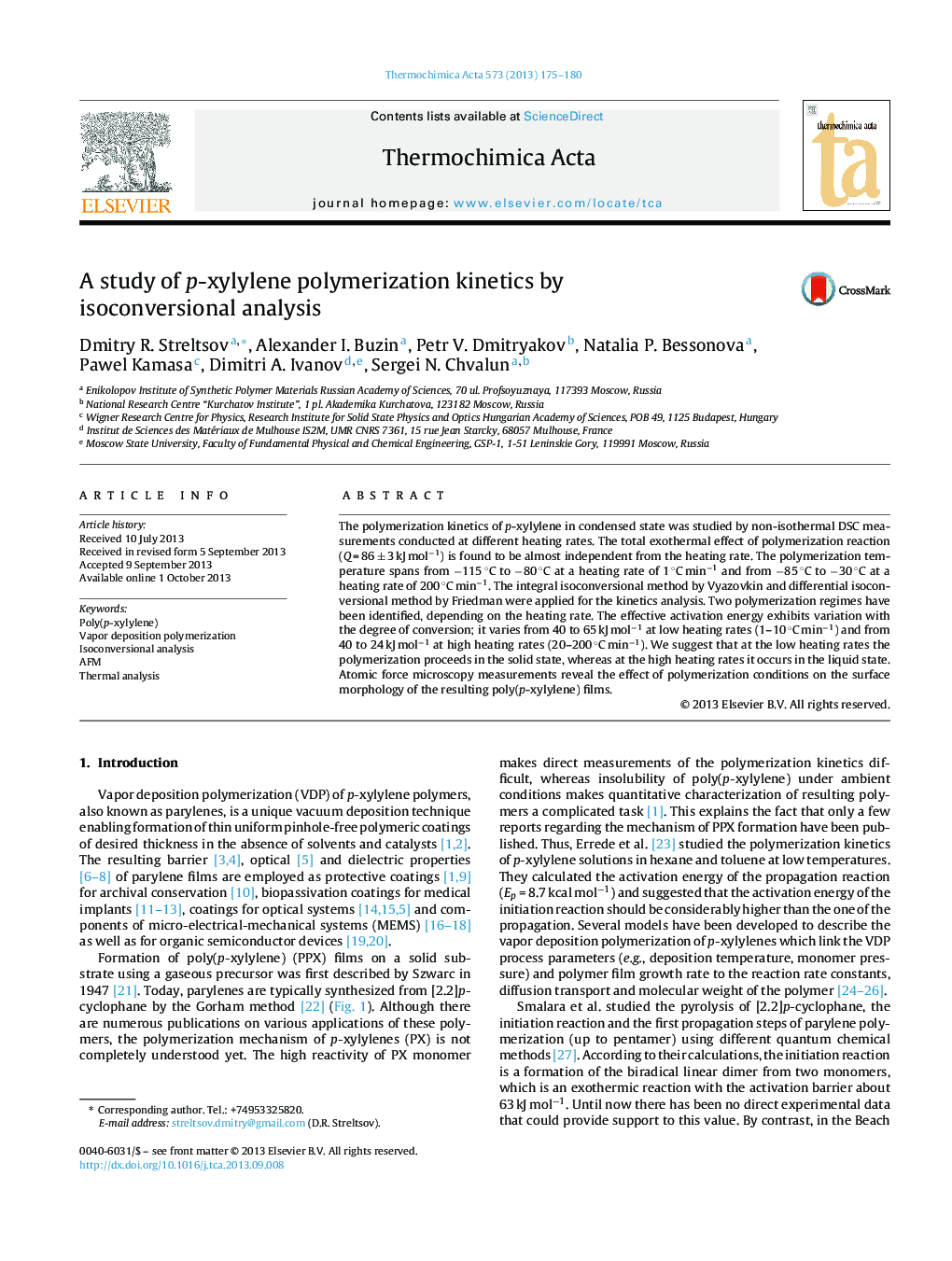| Article ID | Journal | Published Year | Pages | File Type |
|---|---|---|---|---|
| 673487 | Thermochimica Acta | 2013 | 6 Pages |
•The polymerization kinetics of p-xylylene in condensed state was studied.•The heat effect and the temperature range of polymerization were determined.•The effective activation energy varies with the degree of conversion.•Two polymerization regimes have been identified, depending on the heating rate.•AFM reveals the effect of polymerization conditions on the surface morphology.
The polymerization kinetics of p-xylylene in condensed state was studied by non-isothermal DSC measurements conducted at different heating rates. The total exothermal effect of polymerization reaction (Q = 86 ± 3 kJ mol−1) is found to be almost independent from the heating rate. The polymerization temperature spans from −115 °C to −80 °C at a heating rate of 1 °C min−1 and from −85 °C to −30 °C at a heating rate of 200 °C min−1. The integral isoconversional method by Vyazovkin and differential isoconversional method by Friedman were applied for the kinetics analysis. Two polymerization regimes have been identified, depending on the heating rate. The effective activation energy exhibits variation with the degree of conversion; it varies from 40 to 65 kJ mol−1 at low heating rates (1–10 °C min−1) and from 40 to 24 kJ mol−1 at high heating rates (20–200 °C min−1). We suggest that at the low heating rates the polymerization proceeds in the solid state, whereas at the high heating rates it occurs in the liquid state. Atomic force microscopy measurements reveal the effect of polymerization conditions on the surface morphology of the resulting poly(p-xylylene) films.
